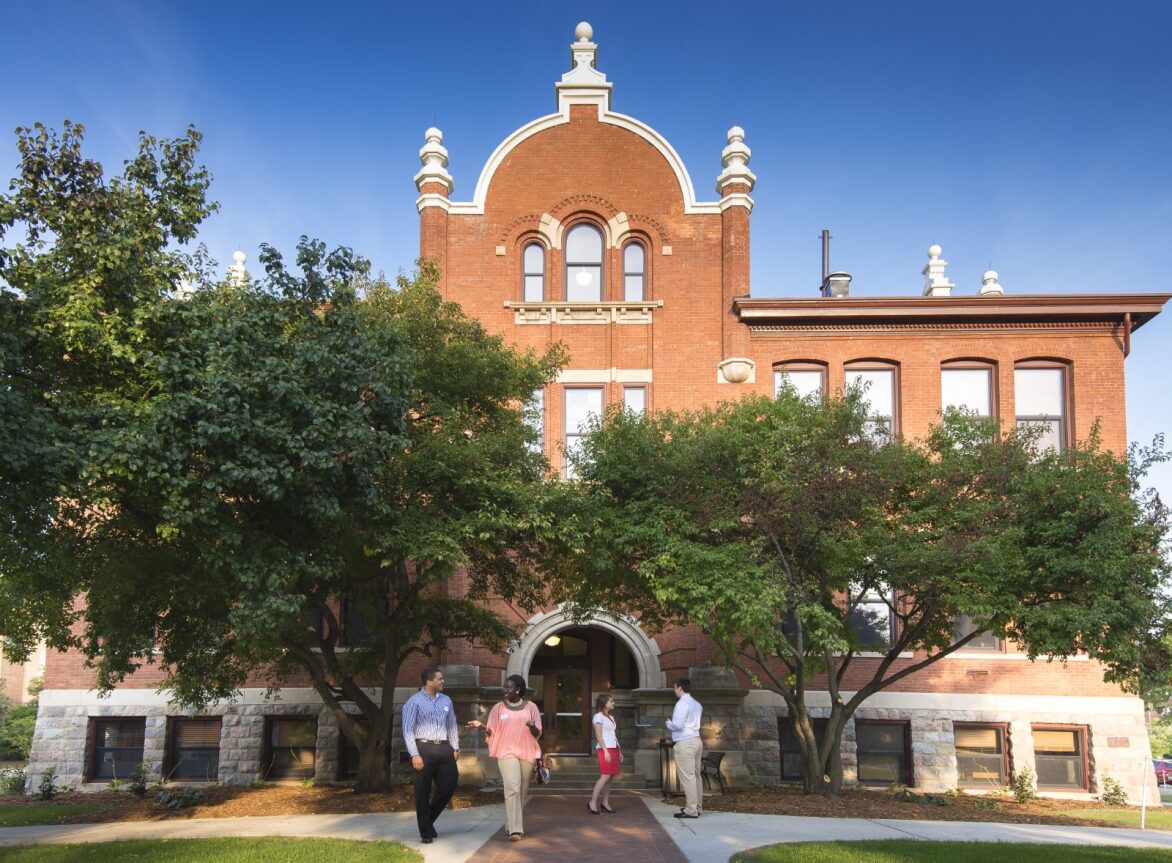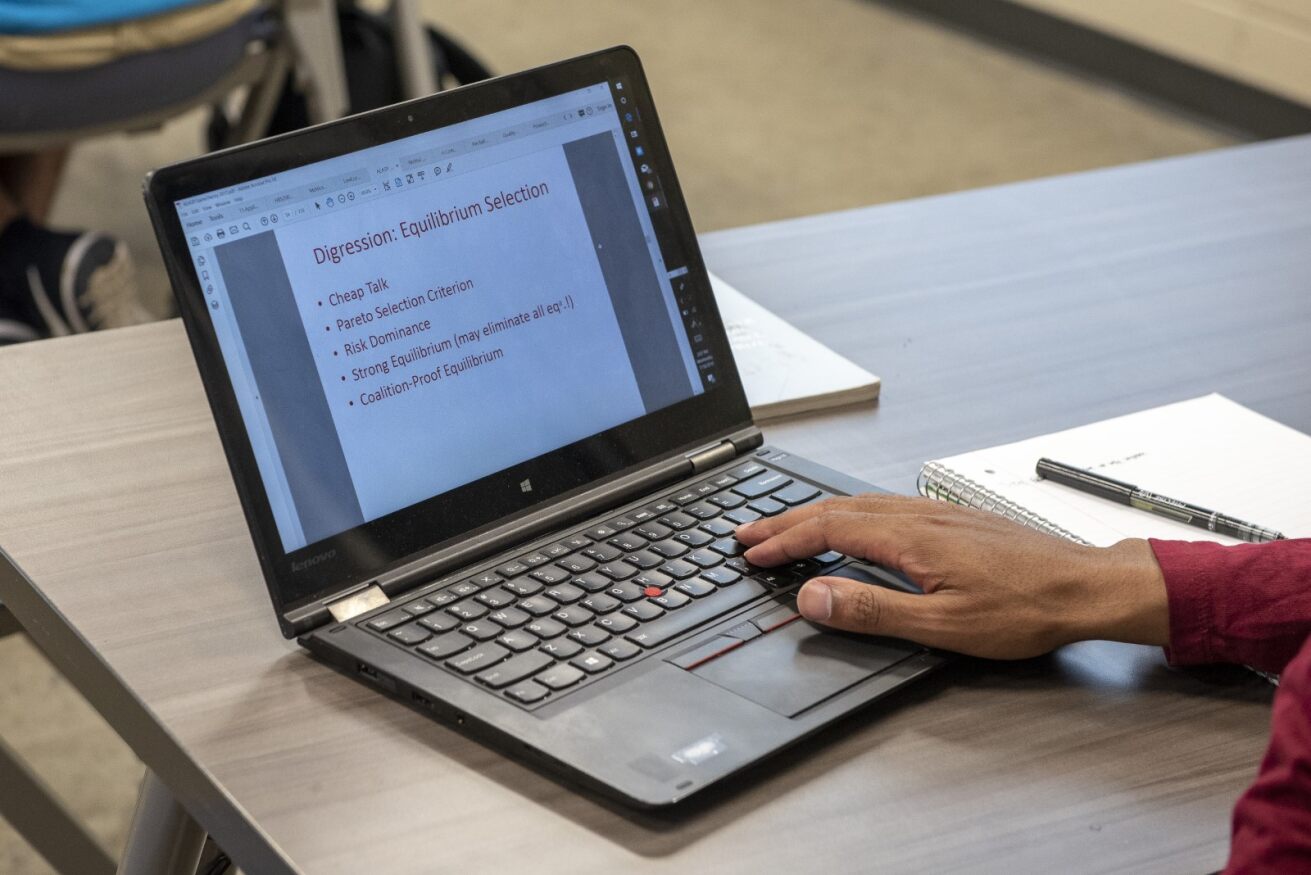The Ph.D. program in MSU’s Department of Economics is a leader in economic research and training, routinely being ranked between the 25th and 35th-best economics departments in the United States, according to U.S. News & World Report. According to the current Research Papers in Economics (RePEc) rankings, MSU is 24th in the United States and is in the top three in the Big 10 in Econometrics, International, Labor, Micro, and Public. For additional rankings, see the American Economic Association.
We recognize that the best education comes from building a strong theoretical and econometrics foundation and working closely with faculty members and fellow classmates. As a department, we have taken steps to maximize these opportunities by offering competitive support packages, keeping field class sizes small, and fostering a collaborative environment within and between cohorts.
Our goal is that students will leave MSU with the research tools, experience, and professional network necessary to succeed in their desired careers. Recent graduates have gone on to work in tenure-track positions at top research institutions (Rutgers, Georgia Tech, Arizona, Oregon State, Iowa State, Melbourne, Essex), top government agencies (Census, Environmental Protection Agency, Federal Deposit Insurance Corporation, Food and Drug Administration, Securities and Exchange Commission, U.S. Government Accountability Office), and top private sector firms (Abt, Amazon, Citi, J.P. Morgan, Mathematica).
Structure
Course Selection
While our course selection changes from year to year, we have structured the program so that we can offer at least one course in all of our primary fields each year:
- Microeconomic Theory
- Macroeconomics
- Development
- Econometrics
- Environmental and Resource
- Industrial Organization
- International Trade
- Labor
- Public
In addition to working on topics in these primary fields, we frequently have students working in secondary fields, including Aging, Behavioral, Education, and Health. Please see Michigan State University's schedule of courses for a complete and up-to-date course offering.
Funding Information
All admitted students are automatically considered for funding and fellowships. In recent years, all admitted students received some form of funding, ranging from university-wide fellowships that require no teaching to teaching and research assistantships. We will communicate a student’s funding offer in the official admissions offer letter.
Contact
For more information, please contact Hanzhe Zhang, Director of Graduate Admissions, or Jay Feight, Graduate Program Coordinator.
Your Next Step

